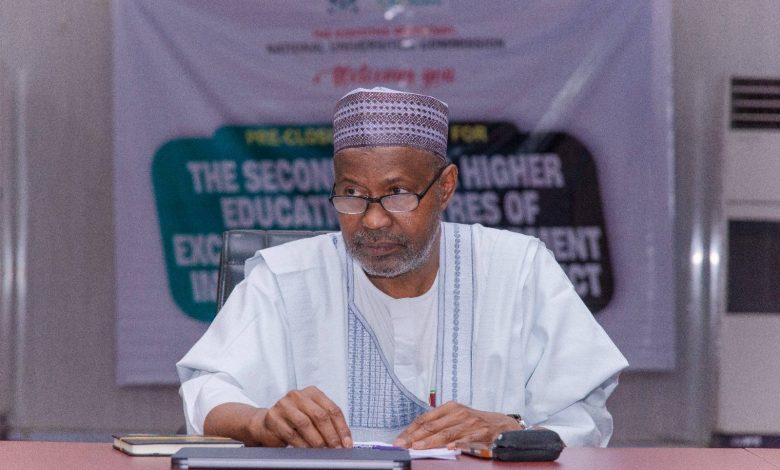NUC dismisses social media claims on accreditation process as misleading

The National Universities Commission (NUC) has refuted claims circulating on social media suggesting that its accreditation process for Nigerian universities is merely ceremonial and allows institutions with inadequate staffing to secure full accreditation.
In a statement issued on Wednesday, Abdullahi Ribadu, the NUC executive secretary, described the assertions—credited to one Taofik Olatubonsun—as baseless and misleading, saying they stem from an uninformed perspective.
“The claim that accreditation is a mere formality… is not only false and baseless but has been disseminated from an uninformed position,” the statement reads.
Ribadu said while the NUC typically refrains from engaging with unverified online allegations, he noted that the commission was compelled to respond in this instance to protect the integrity of Nigeria’s university system, which, according to him, has built a robust quality assurance framework over the years.
Established by law under Section 10 of the Education (National Minimum Standards and Establishment of Institutions) Act, the NUC is the sole regulatory body responsible for accreditation in Nigerian universities.
He stressed that NUC’s accreditation process is rigorous and grounded in international best practices, often drawing interest from other African countries such as Namibia, The Gambia, and Niger Republic.
“NUC’s accreditation method involves peer reviews by panels of subject-matter expert professors who assess academic programmes based on the Core Curriculum Minimum Academic Standards (CCMAS). Programmes must score at least 70% in four core areas—Academic Matters, Staffing, Physical Facilities, and Library—to attain full accreditation status,” he added.
The executive secretary clarified that while full accreditation does not imply perfection, it signifies an acceptable standard of performance with room for improvement.
He added that that staffing remains a key element in the process, with evaluators physically inspecting staff records and qualifications during visits.
“Any attempt to present temporary staff or falsify records by any university will attract sanctions,” the ES warned, adding that the commission’s panellists and staff are held to strict ethical standards.
Ribadu also noted that accreditation reports go through an internal review and ratification process before final approval, ensuring compliance with its established guidelines.
Reiterating the commission’s commitment to quality, he urged universities to strengthen internal quality assurance mechanisms and encouraged the public to rely on verified information rather than misleading claims that could harm the reputation of Nigeria’s higher education sector.





